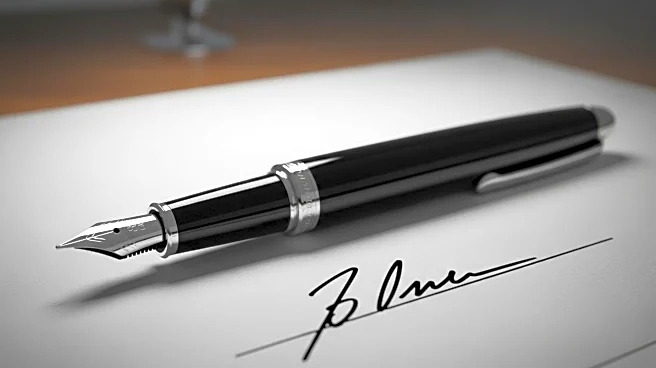What is the story about?
What's Happening?
A letter from 2003, allegedly signed by President Trump and addressed to Jeffrey Epstein, has been released by U.S. lawmakers, sparking controversy. The White House has denied the authenticity of the letter, stating that President Trump did not write or sign it. However, Democrats believe the signature is genuine, prompting further scrutiny. BBC Verify's Jake Horton has been examining the signature with the help of handwriting experts to determine its authenticity.
Why It's Important?
The controversy surrounding the alleged Trump signature on the Epstein letter highlights the ongoing scrutiny of President Trump's past associations and actions. The situation underscores the political tensions between the White House and Democratic lawmakers, who are keen to investigate any potential links between Trump and Epstein. This development could have implications for public perception of President Trump, affecting his political standing and influencing future investigations into his past conduct.
What's Next?
As the investigation into the letter's authenticity continues, handwriting experts may provide further analysis to determine its legitimacy. Depending on the findings, Democrats may pursue additional inquiries into President Trump's past associations with Epstein. The White House may also issue further statements to clarify its position and address public concerns. The outcome of this investigation could influence political discourse and impact President Trump's reputation.
Beyond the Headlines
The controversy raises ethical questions about the use of personal signatures in political investigations and the implications for privacy and authenticity. It also reflects the broader cultural dynamics of political accountability, where public figures are scrutinized for their past actions and associations. The situation highlights the importance of transparency and integrity in political leadership.















